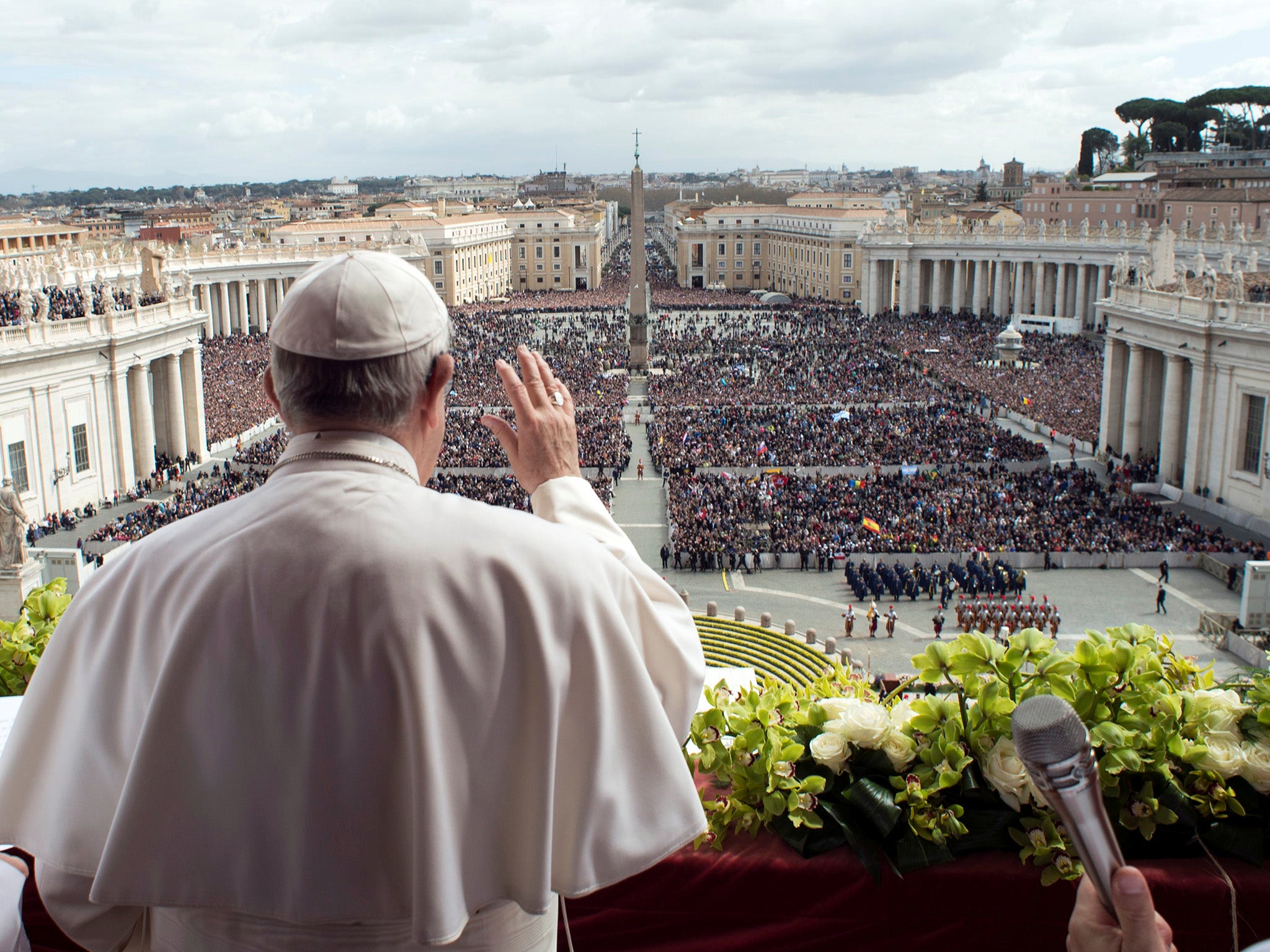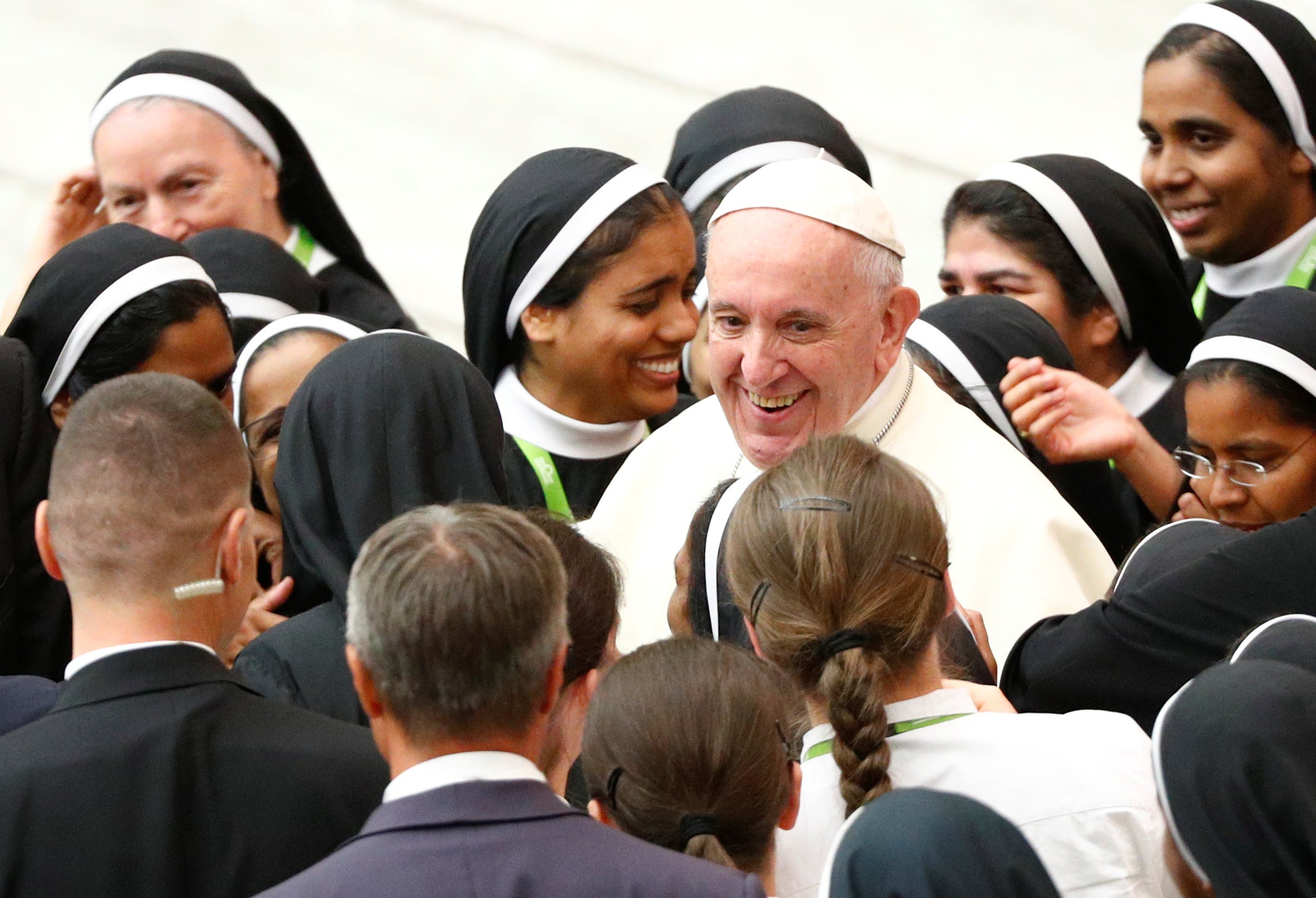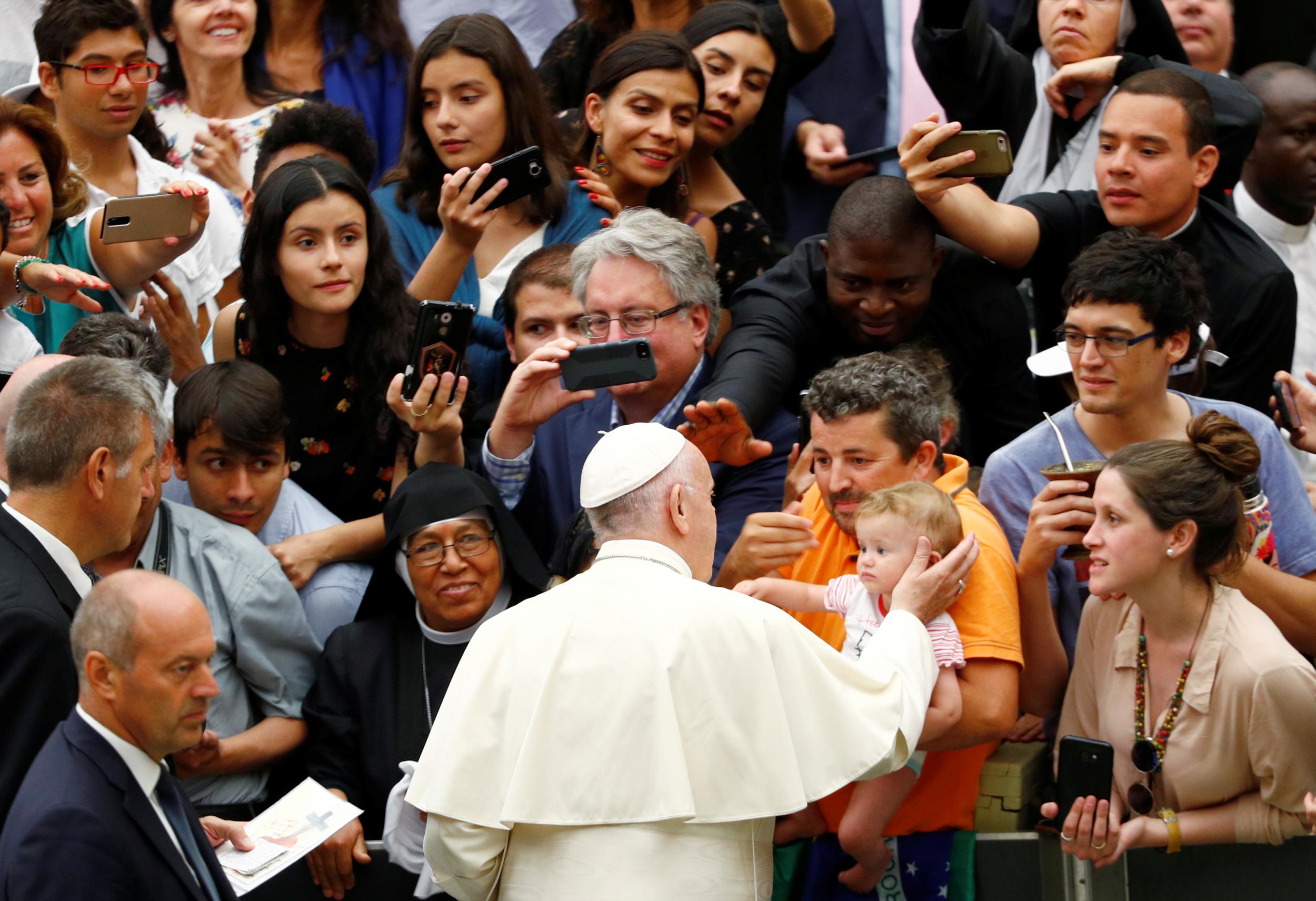What Pope Francis' death penalty reversal means for Trump and capital punishment globally
News from Vatican comes as US government looks to expand use of death penalty

Pope Francis’ reversal of the Catholic Church’s teachings on the death penalty could prove to have tremendous impacts extending far beyond the walls of the Vatican.
In ordering a change to the church’s official position on capital punishment, the pope has signalled his support for ending the practice worldwide. Under the new teachings, the church will work "with determination" towards abolishing the death penalty in all 53 countries where it still exists, similar to how it has lobbied in other social and political issues in recent years.
The reversal arrives as Donald Trump’s administration in the US — which is among the largest nations carrying out state-sanctioned executions — threatens to broaden its use of the death penalty against drug dealers and traffickers.
What are the Catholic Church’s new teachings on the death penalty?
Pope Francis has said "the death penalty is inadmissible because it is an attack on the inviolability and dignity of the person". The reversal comes in the form of a codified change to the church’s official doctrine outlining its teachings and practices, called the catechism.

The catechism was first released in 1992 to provide a "full, complete exposition of Catholic doctrine, enabling everyone to know what the church professes, celebrates, lives and prays in her daily life".
The new text goes on to say that, “in the light of the Gospel," capital punishment is considered "an attack on the inviolability and dignity of the person".
According to the new teachings under Pope Francis, the church encourages authorities to provide as many opportunities for reconciliation as possible.
The move follows years of Catholic leadership denouncing the use of capital punishment in most cases. However, the pope appears to go a step further from previous statements by describing lifetime imprisonment as a variation of the death penalty.

The Catholic Church previously said capital punishment was a "right and duty" for authorities
In the original 1992 catechism, Pope John Paul II said it was "the right and duty of legitimate public authority to punish malefactors by means of penalties commensurate with the gravity of the crime, not excluding, in cases of extreme gravity, the death penalty".
"The primary effect of punishment is to redress the disorder caused by the offence," the writing continued. "If bloodless means are sufficient to defend human lives against an aggressor and to protect public order and the safety of persons, public authority should limit itself to such means because they better correspond to the concrete conditions of the common good and are more in conformity to the dignity of the human person."
By 1997, however, the former pope removed sections of the teaching on capital punishment related to protecting the public. In a 2008 address to Emory University, Archbishop Wilton Gregory said this greatly reduced the necessity for state-sanctioned deaths according to the Catholic church.
"In looking at the revised version of the text, one would have to conclude that the only purpose that would render an execution morally licit, according to Catholic teaching, is the defence of society from the particular criminal whose sentencing is under question," he said.
The 1997 version of the catechism urged US bishops to imply "a very restrictive application of the death penalty".
This change led the Church to take the official position that all types of punishment should ultimately seek to provide "the condition to regain the exercise of his or her freedom".
What does this mean for US-Vatican relations?
This isn't the first time Mr Trump and Pope Francis have disagreed in their policy positions. The pope made a global push for migrants' rights during the height of the international refugee crisis, calling on nations to welcome those impacted by worldwide wars, famine and violence.
The Pope supported the US Bishops Conference after it denounced Mr Trump's "zero tolerance" policy along the US-Mexico border, describing the systematic separation of immigrant families as "immoral" and "contrary to our Catholic values".
"I am on the side of the Bishop’s Conference," the pope told Reuters. "Populism does not resolve things. What resolves things is acceptance, study, prudence."
During their meeting, the two leaders discussed assistance for immigrants and “the promotion of peace in the world through political negotiation and inter religious dialogue”, according to a Vatican statement.
It can be expected the church will now urge Mr Trump's administration to consider softening its position on the death penalty. Currently, the death penalty is still legal in 31 states across the US, where 22 per cent of the nation’s overall population are Catholic.
Whether the White House heeds the calls of the Vatican is another story. Mr Trump has demanded the Justice Department seek the death penalty in some drug trafficking cases, saying during a speech in March that the government is "wasting our time" by not executing certain criminals with drug charges.
"If we don't get tough on the drug dealers, we are wasting our time," he said. "And that toughness includes the death penalty."
The speech led Attorney General Jeff Sessions to release a statement pledging to "seek the death penalty wherever appropriate".
Many nations with significant Catholic populations still carry out the death penalty
While Catholics make up one of the largest religious subsets in the US at 22 per cent, half of the population in nations like Cuba, Dominica and Uganda are also Catholic — and they continue carrying out state executions as well.
It remains unclear what policy changes could arrive in any of the 53 nations where the death penalty is still legal, following the Church’s reversal. Capital punishment also remains legal in countries with notable Catholic minority populations like India, where there are nearly 20 million Catholics.

However, several nations with significant Catholic populations have outlawed the death penalty in recent years, the BBC reported, including Burkina Faso, Madagascar and Benin.
At least 993 state-sanctioned executions occurred in 23 countries last year, Amnesty International reported, with the majority of those deaths occurring in China, Iran, Saudi Arabia, Iraq and Pakistan. Meanwhile, all 53 nations where capital punishment is legal issued death sentences in 2017.
In its new teachings, the Church said the death penalty was once "an appropriate response to the gravity of certain crimes and an acceptable, albeit extreme, means of safeguarding the common good".
"Today, however, there is an increasing awareness that the dignity of the person is not lost even after the commission of very serious crimes," the new text continued. "More effective systems of detention have been developed, which ensure the due protection of citizens but, at the same time, do not definitively deprive the guilty of the possibility of redemption."
Join our commenting forum
Join thought-provoking conversations, follow other Independent readers and see their replies
Comments
Bookmark popover
Removed from bookmarks